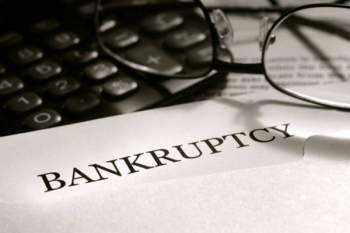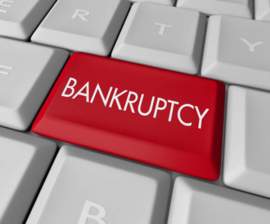
Massachusetts Bankruptcy

A Brief Introduction Massachusetts State Bankruptcy Law
Before Filing for Bankruptcy
All businesses need to hire a lawyer to file for Massachusetts corporate bankruptcy, but for private individuals filing for personal bankruptcy this is strictly optional. However, many still choose to hire one because of how forms are required by Massachusetts bankruptcy and how difficult it is to keep everything straight. Consult this list of Massachusetts legal services if you are unable to pay for an attorney on your own: website
All private individuals are required to attend credit counseling no earlier than 180 days before filing for Maryland bankruptcy. For a list of approved credit counselors who can tell you if a more advantageous financial solution exists for you then bankruptcy, look at the Justice Department website here.
Filing for Bankruptcy
Four different locations exist for the United States Bankruptcy Court of the District of Massachusetts: Boston, Hyannis, Springfield and Worcester. Filing can be done at one of these locations of by mail. Currently required forms for the different types of bankruptcy can be found here. Remember that you’ll have to pay a hefty fee at the time of your filing, $306 for Chapter 7, $1046 for Chapter 11, or $281 for Chapter 13. Be sure that you understand which type of bankruptcy you’ll be petition for before you start filling out your paperwork.
Corporate Massachusetts Bankruptcy
Bankruptcy isn’t an enjoyable procedure, but it is meant to be helpful. To make sure that you get the most out of it that you can, make sure that you’ve picked the type of corporate Massachusetts bankruptcy most appropriate to your business’s needs.
• Chapter 7: This type of Massachusetts bankruptcy is meant to be filed for businesses with little chance of future success. The court will seize all assets and sell them in an attempt to pay creditors, and if debt still exists when all the assets are left, then the business is still accountable and therefore has a very limited ability to restart operations.
• Chapter 11: If your business has the potential do make a profit but it is in heavy debt now, then Chapter 11 Massachusetts bankruptcy is intended for you. The court will assist you in creating a debt payment plan. Operations can continue as normal during this time since the company retains possession of all its capital and assets.
Personal Massachusetts Bankruptcy
Over a million Americans filed for personal bankruptcy in 2008 alone. Joining their ranks may be an excellent option that will start you off on the road to financial freedom, but before you do, research the most common types of personal Massachusetts bankruptcy.
• Chapter 7: As with businesses, a court acting on a Chapter 7 filing has an individual’s assets sold to pay back creditors. All loans taken without collateral such as credit car loans are dissolved, whether or not asset sales pay back the debt. Only individuals earning less than the Massachusetts Mean income or who pass the Massachusetts Mean test can file for Chapter 7 Massachusetts bankruptcy.
• Chapter 13: Like Chapter 11, Chapter 13 Massachusetts bankruptcy protects assets and pauses debt payment while a new debt payment schedule is devised. The individual’s debt is paid over a course of three to five years, using money from the individual’s discretionary income.
The Income Debt Dilemma
The one downside to Massachusetts bankruptcy law is that it’s powerless in the face of one of the most common types of debt, tax debt. Since most types of tax debt can’t be dissolved or lowered by Massachusetts bankruptcy law, it’s best to consult with a Massachusetts bankruptcy or tax lawyer to understand what your best option moving forward will be.



















